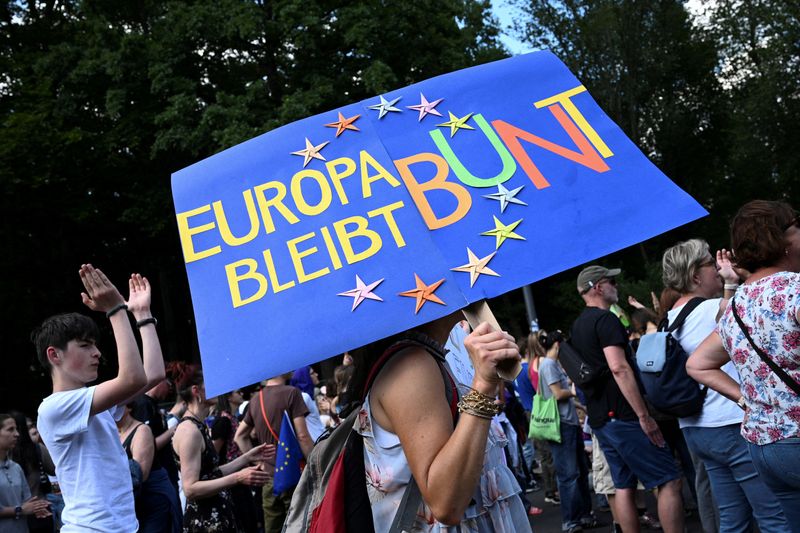Europe has struggled economically for years on surging prices and the fallout from Russia’s war in Ukraine, fuelling populist sentiment that has lifted the far right in European Parliamentary elections and prompted French President Emmanuel Macron to call a snap national election.
Stagnant growth, big swings in energy costs and political uncertainty have all damaged the bloc’s competitiveness, particularly when compared to a booming U.S., leaving the world’s two biggest economic blocs on a diverging course.
The more than 500 executives surveyed rank political instability, including upcoming elections, populism and polarisation as the second-biggest risk, trumped only by an increased regulatory burden.
French opinion polls project that Marine Le Pen’s far-right National Rally could for the first time top the June 30 and July 7 vote, even if it was unlikely to win enough seats to govern on its own.
This has rattled financial markets in recent days pushing up French borrowing costs on fears that a populist government would strain France’s already limited financial resources.
“As geopolitical and global trade tensions intensify, European policymakers need to be equipped to respond rapidly and decisively,” EY said. “Individual Member States must be aligned on key areas, including which industries need to be protected and where the threats lie.”
Energy price volatility could be reduced by investing in better connected infrastructure and fostering a green transition given that Europe was overly reliant on Russia for decades.

But bureaucracy is the overall biggest threat, the executives said.
“European policymakers can alleviate these concerns by harmonizing regulation, reconsidering the pace of introducing new regulation and repealing outdated laws whenever possible,” EY said.
To read the full article, Click Here

